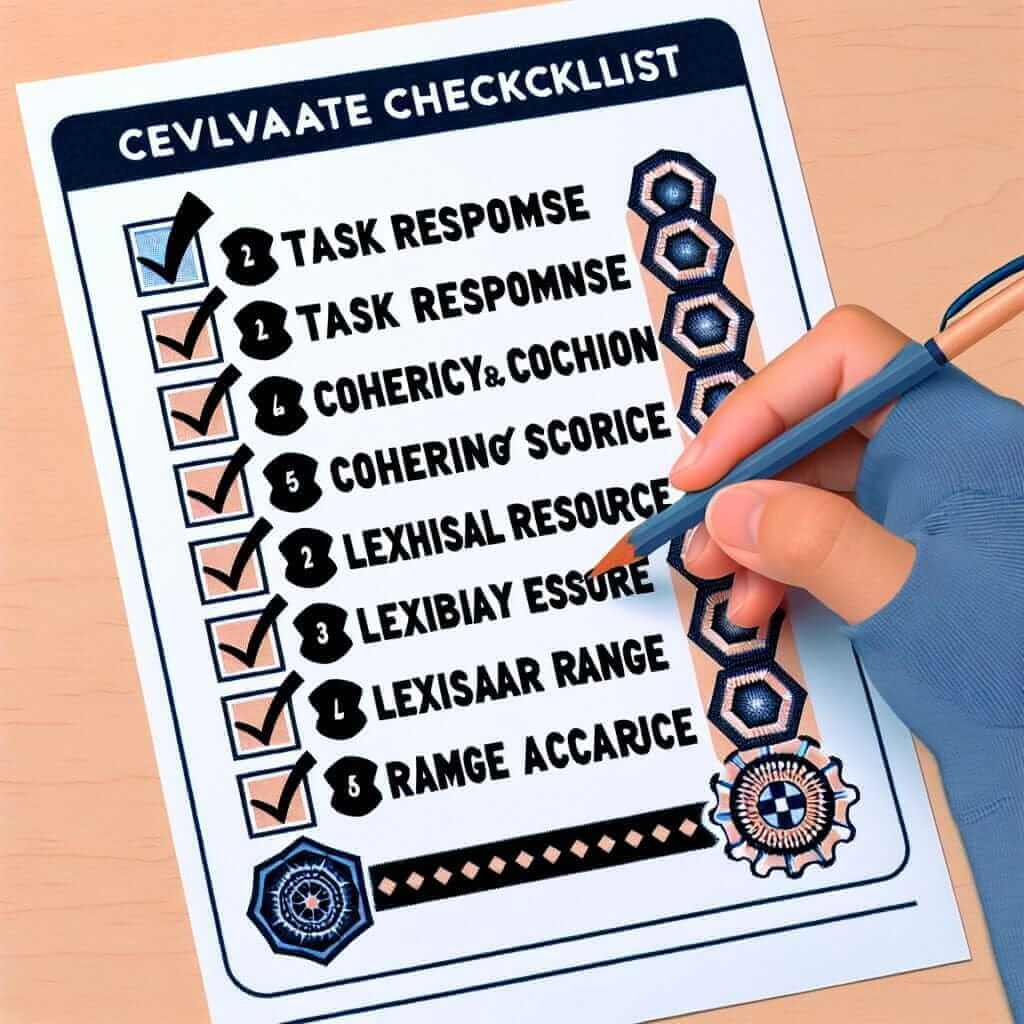For many IELTS test-takers, the Writing Task 2 essay presents a significant hurdle. Not only do you need to demonstrate a strong grasp of English grammar and vocabulary, but you also need to effectively structure your thoughts and arguments. Naturally, after pouring your efforts into crafting your essay, you’ll want to assess its strengths and weaknesses. But how can you do that effectively without the feedback of a qualified IELTS instructor?
Understanding the Importance of Self-Assessment
While nothing can fully replace the personalized feedback of an experienced IELTS teacher, learning to critically evaluate your own writing is an invaluable skill. It allows you to:
- Identify recurring errors: Do you consistently struggle with article usage or subject-verb agreement? Recognizing your own patterns of mistakes is the first step towards eliminating them.
- Develop self-sufficiency: By becoming your own editor, you gain confidence in your ability to assess and refine your writing, even under pressure.
- Maximize learning from feedback: When you receive feedback from a teacher or tutor, you’ll be more receptive and better equipped to implement their suggestions.
Effective Strategies to Check Your IELTS Writing Task 2
While you might not be able to perfectly replicate the scoring process used by IELTS examiners, there are several practical steps you can take to evaluate your own Writing Task 2 essays:
1. The Time-Out Technique
After completing your essay, step away from it for at least 30 minutes. This allows you to return with fresh eyes and a clearer perspective.
2. The Checklist Approach
Create a personalized checklist based on the four IELTS Writing Task 2 assessment criteria:
- Task Response: Have you fully addressed all parts of the prompt? Is your position clear and well-supported with relevant examples?
- Coherence and Cohesion: Does your essay flow logically? Have you used a range of cohesive devices (linking words, pronouns, etc.) to connect your ideas smoothly?
- Lexical Resource: Have you demonstrated a wide range of vocabulary? Is your word choice accurate and appropriate for the task?
- Grammatical Range and Accuracy: Have you used a variety of sentence structures? Are your sentences free from grammatical errors?
3. Read Aloud
Reading your essay aloud forces you to slow down and pay attention to each word and phrase. You’ll likely catch awkward phrasing, repetitive vocabulary, or grammatical slips that you might have missed when reading silently.
4. Seek External Feedback
While self-assessment is valuable, getting feedback from others is essential. Share your essay with an IELTS tutor, a language partner, or a friend who is proficient in English.
Illustrative Example: Analyzing an Essay Introduction
Let’s say your essay prompt asks you to discuss the advantages and disadvantages of living in a large city. Here’s a sample introduction:
“Many people nowadays are choosing to move to big cities. This essay will talk about the good and bad things about this trend.”
 IELTS Writing Checklist
IELTS Writing Checklist
Now, let’s analyze it using the IELTS criteria:
- Task Response: The introduction adequately paraphrases the prompt, but it doesn’t offer a clear opinion or thesis statement.
- Coherence and Cohesion: The language is simple and straightforward, but it lacks sophisticated linking words or phrases.
- Lexical Resource: The vocabulary is quite basic (“good and bad things”). Aim for more academic language (e.g., “advantages and disadvantages,” “merits and drawbacks”).
- Grammatical Range and Accuracy: The grammar is correct, but the sentences are quite basic.
Key Takeaways for IELTS Success
Remember, effective self-assessment is an ongoing process. The more you practice, the better you’ll become at identifying your own strengths and weaknesses as a writer. Don’t be afraid to experiment with different self-checking techniques to discover what works best for you. By combining diligent practice with thoughtful self-evaluation, you’ll be well on your way to achieving your desired IELTS Writing score.


